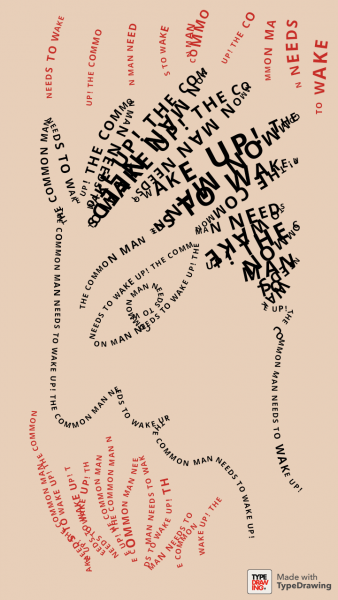Demonetisation has suddenly pole-vaulted from being a part of an economist’s jargon on the TV screen to diving into a common man’s conversation. Everyone seems to be bothered about it, talking about it, and holding a strong opinion on it. It appears that the ‘demon’ stationed inside this word has come alive and is kicking concepts, emotions, relationships, loyalties, politics, and everything else that comes in its way.
The announcement of the two denominations of Rs 500 and Rs 1000 being banned from legal transactions has left a lot of people in India and elsewhere in a daze. From comparing the move to ‘kadak chai’ with the potential to give ulcers to proclaiming that ‘economic experts say the magnitude of the global economic crisis at times is not felt in India because of strong (parallel) economy of black money’ the politicians have laid bare the jittery state that they are in. It isn’t just Amarinder Singh and Akhilesh Yadav making it to the headlines in newspapers… even Kapil Sibal echoes the tremors that are being felt when he literally tried to bulldoze the government demanding ‘sufficient time for preparedness’. But the truth is that there are no riots on the streets, buses are being burned, no ‘rasta roko’ and ‘rail roko’ demonstrations, no violence, and no visible opposition by the common man anywhere. The opposition may go calling demonetisation an ‘economic anarchy’ but reading between the lines reveals that all earlier unsavoury incidents must have been politically motivated. I’m sure this is going to be not just a clean-up of the black state in which our currency was in, it is the right step towards having a stable bureaucracy and a responsible polity.
Even the so-called 150 eminent citizen who have expressed their unhappiness at this sudden development are being viewed as having some sort of nervousness at accepting a new visual identity and thus a limpid attempt to protest against this revolutionary emotional connect with all things monetary. India is certainly poised to step out of the black market muck that it has been wading in for years.
We are suddenly watching a nation that is full of lost souls and no sane man coming forward to help them out this time. Yes, queues are there. Yes, inconvenience is obvious. Yes, difficulties are experienced. But surrounding all this brouhaha is the fact that this isn’t the last of radical changes that Modi has announced. ‘Sabka saath, sabka vikas,’ or ‘together with all, progress for all’ suddenly transcends mere slogan-mongering and has become a chant ready to topple the economic evils plaguing the country.
Fourteen trillion rupees need to be injected into active circulation proactively… and the speed of implementation as yet is slow. Traders and the business community needs to understand that a cashless economy isn’t something to be shunned and that plastic money and digital transactions are the need of the hour. Stable and acceptable GST norms have to be reincarnated. Business ethics needs to be force-fed.
Force-fed? Yes, revolutionary transitions aren’t easy to adopt, nurture, and nourish. There will always be large segments forever cribbing and whining and maybe resorting to underhand methods to be heard. There will be CMs coughing out their helplessness. There will be CMs marching up and down the Raisina Hill raising slogans that have the potential to stall this progression. There are election motives that may need to be overhauled. There are traditions that will need to be reviewed and restructured.
All I can say at this point is that India deserved this ‘danda’ as without it there would never have been even a possibility of emerging as a power that can aspire to be a world leader.
.
.
.
.
.
.
Arvind Passey
17 November 2016










10 comments
Prakash kr says:
Nov 17, 2016
Let see the outcome of this move…past experience of demontization has yielded only less results…. of course this should be the last and final act before attempting many things…
Arvind Passey says:
Nov 18, 2016
True… the final result matters. But it surely is a forceful move and needs support. 🙂
Thanks for visiting the blog… do come again.
Hiral says:
Nov 21, 2016
Very well written. I liked the sharp and clear conclusion – “All I can say at this point is that India deserved this ‘danda’ as without it there would never have been even a possibility of emerging as a power that can aspire to be a world leader.”
Arvind Passey says:
Nov 22, 2016
And I am surprised at the number of intelligent people now raising the chorus of ‘roll-back’ after being unable to stop this decision from rolling in. 🙂
Thanks for appreciating the writing style and I hope to have you visit the blog again in the future.
Prasad Np says:
Nov 22, 2016
Good, bad or ugly only time will tell.. today everybody has become a PhD in Economics and monetary policy and a Post Doctorate in sociology
Arvind Passey says:
Nov 22, 2016
True… time has all the answers carefully folded in its unopen creases. It is almost like finding friends do things without letting even a whiff leak away until social media updates reveals all. 🙂
Arvind Passey says:
Nov 22, 2016
…and, by the way, a doctorate in economics doesn’t necessarily mean a person is pragmatic enough to lead the nation. Right?
Arvind Passey says:
Nov 22, 2016
Let me also add here that common sense and the reactions of the common man are what governments must try and listen. We have had a long history of governments drowning these voices and sounds in the babble of their own vested analytics.
Pankaz says:
Dec 22, 2016
Just a fantastic blogpost! Thank you Arvind Passey!!!
Arvind Passey says:
Jan 9, 2017
Thanks for reading and liking this post… 🙂